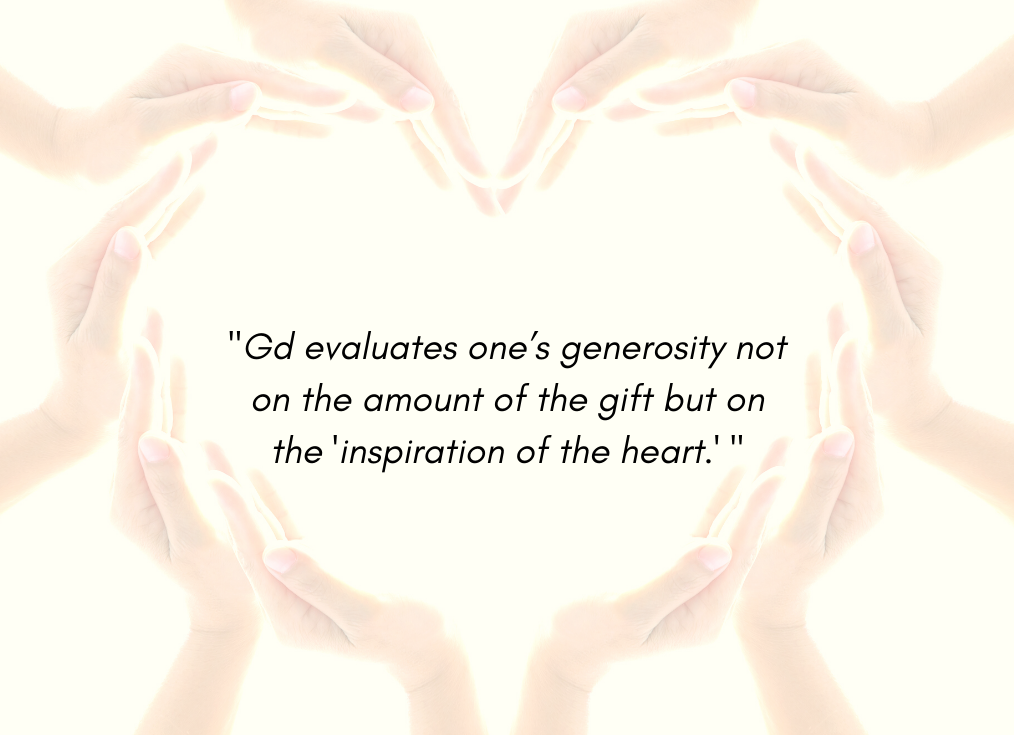Giving from the Heart

February 4, 2022
As I began to write my column on this week’s Torah portion, Terumah, I realized we are one year out (in Torah portions at least) from the “great freeze.”
Now, my intent is not to reflect on the events of that extraordinarily difficult week, nor is it to make a comparison to the cold front that has swept across the country this week and once again brought freezing temperatures to San Antonio. Rather, my intention is to add a little more clarity to one of the most awkwardly worded commands in the Torah, “Take for Me an offering” (Exodus 25:2), which I mentioned in last year’s weekly column.
To provide you the context of this verse, Gd is speaking to Moses and saying to him that it’s time to build the Mishkan, the portable sanctuary where Gd would dwell amongst the Hebrews while on their journey to the Promised Land. Specifically, Gd says to Moses to take the supplies, “from every person whose heart inspires them to generosity.” (Ex. 25:2)
Our sages discussed Gd’s choice of words to better understand the motive, intent, and capacity for personal choice of these newly freed people. Why not tell Moses to “collect the offerings” or “gather them”? If these gifts were to be given out of “generosity,” then why does Gd tell Moses to “take” them?
There is a story of a beggar sitting on a street corner desperate for some funds to purchase food to survive another day and possibly even improve his shelter. A poor man approaches, having just been paid his meager weekly wages, and knows that the funds in his pocket will barely provide for him for the week. However, the pauper sees the beggar and realizes that as difficult as his life is, it could still be worse. The poor man reaches into his pocket and pulls out a few coins and drops them in the beggar’s cup as he walks by, blessing him with hope for a better future. A few minutes later a wealthy businessman approaches the beggar, thinking to himself how this disheveled and filthy person offends the beauty of his walk home and pulls out a bill ten times the pauper’s earlier gift and tells the beggar to find another corner to go to.
Who is the more generous donor in this story? Is it the pauper who gives only a few coins, but does so as a much greater percentage of his wealth …and does it with generosity and true sincerity? Or is the greater donor the wealthy man who begrudgingly gave ten times the pauper’s gift, but did it for purely selfish and personal reasons?
The answer is that it depends… From the beggar’s perspective, the benefits of the larger sum of money are clearly more impactful. Although the beggar may appreciate the kind words and blessing from the poor man, the wealthy man’s gift is literally lifesaving. Yet, from Gd’s perspective, there is no real comparison either. Gd evaluates one’s generosity not on the amount of the gift but on the “inspiration of the heart.”
Moses is told to “take” the offering from everyone, but the gifts to be used for Gd are to be the ones from those whose “heart inspires them.” This really is the first confirmation of, “It’s the thought that counts.” At least to Gd it is. Gd is telling Moses that everyone is responsible for giving to the community fund, but that the gifts from those who give with intent, those gifts are holy and need to be used for Gdly purpose.
Tzedakah, charity, tithing, philanthropy, donations, are all “loaded” terms. They convey the transfer of resources from those who have to those who need. Religions from ancient Judaism to those practiced today all promote a communal responsibility. Advanced society’s collect taxes as a modern form of this community responsibility.
The lesson from this week’s Torah portion is that we all give, and we all give in very different amounts and with very different intentions. In fact, in this world, it really does make a difference how much one gives. Meeting the earthly needs of vulnerable populations can only be achieved by securing the necessary funds. However, the holiness of our gift comes from our intent, and sometimes that gift isn’t financial it’s physical. It’s the gift of time, of volunteerism, of care and concern, or maybe even of smiling at someone who needs to know they’ve been noticed.
This week’s action item is to ask all of us, what is our intent of the heart and how can we direct that intent to bring us…
STRONGER TOGETHER.
Shabbat shalom,

